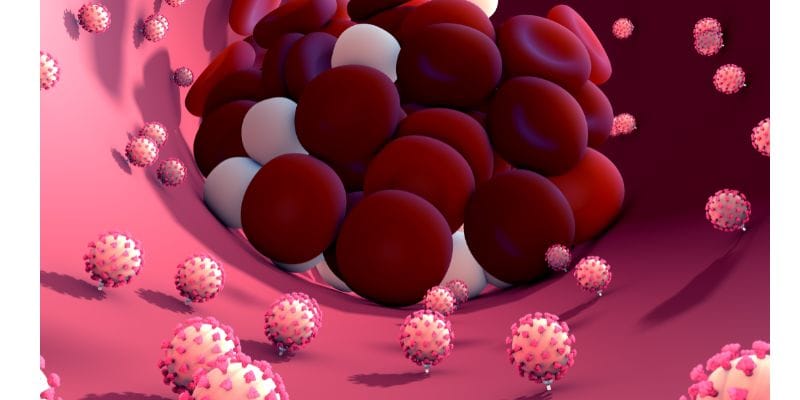Lion's Mane mushroom, scientifically known as Hericium erinaceus, has been a staple in traditional Chinese medicine for centuries, revered for its potential to stimulate brain cell growth and boost immune function. But as its popularity in alternative medicine grows, many are asking: is Lion's Mane hard on the liver? This article delves into the research surrounding Lion's Mane and its effects on liver health.
The Liver: A Vital Organ
The liver is a powerhouse organ responsible for detoxifying the body, aiding in digestion, and regulating blood sugars. Keeping it healthy is crucial for overall well-being. With the rise of supplements, it's important to consider their impact on this vital organ.
Lion's Mane: A Medicinal Mushroom
Lion's Mane is one of the few medicinal mushrooms that has been extensively studied for its health benefits. It's known to promote nerve growth, potentially aiding in the recovery from nervous system injuries and degenerative brain diseases like Alzheimer's.

Research on Lion's Mane and Liver Health
Animal research, particularly studies involving normal and diabetic mice, has found that Lion's Mane can lower blood sugar levels and reduce diabetic nerve pain. These findings are promising for liver health, as high blood sugar is a major risk factor for liver damage.
Lion's Mane and Its Anti-Inflammatory Properties
Inflammatory bowel disease and other inflammatory conditions can affect liver health. Lion's Mane has been shown to have anti-inflammatory properties, which could indirectly benefit the liver by reducing systemic inflammation.
The Impact of Lion's Mane on Brain Health
Lion's Mane's most notable potential health benefits are related to brain health. It's been shown to stimulate brain cell growth, which could be beneficial for those with mild cognitive impairment or recovering from spinal cord injuries.

Lion's Mane and Heart Health
Heart health is intricately linked to liver health. Research suggests that Lion's Mane can reduce oxidized cholesterol molecules that tend to damage heart and blood vessels, indicating a potential indirect benefit for the liver.
Lion's Mane in Traditional and Modern Medicine
In traditional Chinese medicine, Lion's Mane has been used to treat digestive tract problems and boost heart health. Modern research is beginning to develop practical health applications for these traditional uses.
Can Lion's Mane Kill Cancer Cells?
Test tube studies suggest that Lion's Mane extracts can kill human cancer cells. While this research is in its early stages, it points to the mushroom's potential in complementing traditional cancer medications.
Lion's Mane and Alzheimer's Disease: A Ray of Hope?
Have you ever wondered if nature offers a solution to the daunting challenge of degenerative brain diseases like Alzheimer's? Enter Lion's Mane, a medicinal mushroom that's been turning heads in the scientific community. Studies published in journals such as Evidence-Based Complementary and Alternative Medicine have explored how this mushroom could potentially regenerate brain cells. This is groundbreaking because it suggests that consuming Lion's Mane may offer a glimmer of hope for those facing Alzheimer's, a condition that currently has no cure.
The way Lion's Mane interacts with nerve cells is fascinating. It's believed that the mushroom contains compounds that stimulate the growth of brain cells, which could be crucial in repairing neurological damage. While more research is needed to fully understand its effects, the current findings are promising. Imagine a future where a daily Lion's Mane mushroom extract could be part of a regimen to combat the effects of Alzheimer's and other degenerative brain diseases. It's a future worth exploring, and Lion's Mane is leading the charge.
Lion's Mane and Gastrointestinal Relief
Have you ever wondered if the benefits of lion's mane extend to the gut? Well, let's chew on this: consuming lion's mane mushroom extract has been linked to soothing effects on the gastrointestinal tract. Studies published in the International Journal of Medicinal Mushrooms found that lion's mane may offer relief from conditions like alcohol-induced stomach ulcers. This is particularly intriguing because it suggests a natural alternative to traditional acid-lowering drugs, which can have a range of side effects.
The mechanism behind this gut-friendly action is thought to be due to the mushroom's anti-inflammatory properties. Lion's mane extracts can help to reinforce the stomach's mucosal lining, providing a protective barrier against irritants. This is a boon for those seeking a holistic approach to digestive health. So, while we're dissecting the question, "Is lion's mane hard on the liver?", it's becoming clear that this medicinal mushroom is gentle on the stomach and could be a valuable ally in maintaining overall digestive wellness.
Lion's Mane: A Companion in Liver Detoxification
Have you ever wondered if consuming lion's mane is beneficial for your liver's detoxification processes? Well, let's dive into what the research suggests. Studies have found that lion's mane mushroom extract contains compounds that may support the liver in its vital role of filtering toxins from the body. This is particularly important given the liver's susceptibility to damage from environmental toxins, poor dietary choices, and medications.
Moreover, the benefits of lion's mane don't stop there. Daily lion's mane mushroom extract intake has been associated with the regeneration of liver cells in some studies, suggesting a potential for the mushroom to aid in the recovery of liver tissue after damage. This regenerative property could be a game-changer for those looking to support their liver health, especially for individuals recovering from conditions like hepatitis or fatty liver disease.
Lion's Mane: A Potential Protector Against Liver Disease
Have you ever wondered if consuming lion's mane mushroom could be taxing on your liver? Well, let's dive into what the research suggests. Studies have found that lion's mane may actually be a liver's ally rather than a foe. This medicinal mushroom has been shown to contain compounds that can potentially protect the liver from damage. For instance, a study published in Evidence-Based Complementary and Alternative Medicine highlighted the hepatoprotective effects of lion's mane extracts, suggesting that they could help shield the liver from toxic substances.
Moreover, daily lion's mane mushroom extract intake has been associated with the regeneration of liver cells in animal studies. This is particularly promising for those dealing with liver conditions, as it implies that lion's mane supplements could support the liver's natural repair processes. While more human studies are needed to confirm these effects, the current evidence points to lion's mane as a beneficial supplement for liver health rather than a burden.

Lion's Mane: A Versatile Supplement for Overall Well-being
Have you ever wondered about the broader health benefits of lion's mane beyond liver health? Consuming lion's mane supplements is like giving your body a multi-tool for wellness. Studies have found that lion's mane may offer a host of advantages, from bolstering the immune system to potentially aiding in the management of degenerative brain diseases. This medicinal mushroom isn't just gentle on the liver; it's a full-spectrum ally for your body's complex systems.
The versatility of lion's mane mushroom extract is truly impressive. Daily lion's mane mushroom extract intake has been associated with improved cognitive function, which is a beacon of hope for those dealing with Alzheimer's disease and other cognitive impairments. The neuroprotective properties of this fungus are a testament to its potential as a natural therapeutic agent. It's not just about liver health; it's about nurturing the mind and body in a holistic way.
Lion's Mane and Digestive Harmony
When it comes to digestive health, lion's mane extracts could be considered nature's answer to traditional acid-lowering drugs. The mushroom's natural compounds have been shown to soothe the lining of the stomach, offering relief from conditions like alcohol-induced stomach ulcers. This is a significant finding, as it suggests that lion's mane could be a beneficial supplement for those seeking alternatives to conventional medications, which often come with a list of side effects.
Moreover, the benefits of lion's mane don't stop at ulcer management. The mushroom has been found to promote the growth of beneficial gut bacteria, which is crucial for maintaining a healthy digestive ecosystem. By consuming lion's mane, individuals may experience improved gut health, which can lead to better nutrient absorption and overall digestive comfort. This makes lion's mane a valuable addition to a health-conscious individual's diet, particularly for those looking to support their digestive system naturally.
Lion's Mane and Its Potential in Treating Digestive Issues
Turning our attention to the digestive system, lion's mane has been found to offer several benefits that go beyond liver health. For individuals suffering from alcohol-induced stomach ulcers, lion's mane extracts may provide a natural alternative to traditional acid-lowering drugs. Research indicates that the anti-inflammatory properties of lion's mane can soothe the stomach lining and promote healing of ulcers. This is great news for those looking for a more holistic approach to managing their digestive health.
RELATED: Lion's Mane Coffee: For The Holistic Health Conscious
In addition to its ulcer-healing capabilities, lion's mane has also been studied for its potential in managing other digestive disorders. Its ability to modulate the gut microbiota and enhance the intestinal immune system makes it a valuable supplement for overall digestive wellness. Whether it's providing relief from ulcers or supporting a healthy gut environment, lion's mane mushroom extract is proving to be a versatile aid in digestive health management. So, if you're considering consuming lion's mane for its myriad of health benefits, your stomach might thank you too.

Lion's Mane and Its Role in Managing Digestive Disorders
Moving from the liver to the gut, lion's mane supplements have also been linked to improvements in digestive health. For instance, evidence-based complementary medicine research has highlighted lion's mane's ability to combat alcohol-induced stomach ulcers. This is significant because it offers a natural alternative to traditional acid-lowering drugs, which can have various side effects.
In addition to its ulcer-fighting capabilities, lion's mane extracts have been found to promote the growth of beneficial gut bacteria, which is crucial for maintaining a healthy intestinal environment. Consuming lion's mane may, therefore, not only provide relief from digestive discomfort but also contribute to a more robust and resilient digestive system overall. This could be particularly beneficial for those suffering from chronic digestive issues, where maintaining intestinal health is a constant battle.
Lion's Mane: A Cognitive Enhancer
Diving deeper into the brain-boosting potential of lion's mane, we find a treasure trove of cognitive benefits. This medicinal mushroom is not just about liver health; it's also showing promise in the battle against degenerative brain diseases. The Evidence-Based Complementary and Alternative Medicine journal highlights studies where daily lion's mane mushroom extract supplementation had a positive impact on cognitive function. This is particularly relevant for conditions like Alzheimer's disease, where options for management are eagerly sought.
But how does this translate to real-world benefits? Imagine a natural supplement that not only supports your liver but also keeps your mind sharp. Summary animal studies suggest that lion's mane supplements can stimulate the growth of brain cells and improve the functioning of the hippocampus, a region of the brain responsible for processing memories and emotional responses. This positions lion's mane as a potential beacon of hope for those looking to preserve their cognitive abilities and fend off the fog of age-related mental decline.
Lion's Mane: A Natural Ally Against Oxidized Cholesterol?
When it comes to heart health, oxidized cholesterol molecules tend to be major risk factors for cardiovascular diseases. But what if we told you that Lion's Mane might just have a trick up its sleeve to combat this issue? Research published in the Journal of Agricultural and Food Chemistry has found that Lion's Mane extracts could have a beneficial effect on reducing the oxidation of cholesterol. This is significant because it suggests that Lion's Mane supplements could be a natural ally in maintaining heart health.
But how exactly does Lion's Mane tackle oxidized cholesterol? It appears that the mushroom's antioxidant properties play a key role. By potentially reducing the oxidation process, Lion's Mane may help in keeping cholesterol in a less harmful state. This is yet another reason why the health benefits of Lion's Mane are worth paying attention to. While we should not jump to conclusions without further evidence, the prospect of using Lion's Mane as a natural approach to managing cholesterol levels is certainly intriguing.
Lion's Mane and the Intestinal Immune System
A strong immune system protects against many diseases that can affect the liver. Lion's Mane may help boost immune function by supporting the intestinal immune system, which is a major component of the body's overall immune response.
Lion's Mane Supplements: Safety and Dosage
When considering lion's mane supplements, it's important to understand the appropriate dosage and any potential risks. While there's no established lethal dose, moderation is key to avoiding any adverse effects.
The Protective Effects of Lion's Mane on the Liver
Some lab and animal studies have shown that Lion's Mane can protect against alcohol-induced stomach ulcers and acute alcohol exposure, suggesting a protective effect on the liver.

Lion's Mane and Blood Clotting
Blood clotting is a necessary process, but when unregulated, it can lead to heart disease, a risk factor for liver damage. Lion's Mane may help regulate blood clotting, providing another indirect benefit for liver health.
Lion's Mane and Blood Sugar Control
Controlling blood sugars is vital for liver health. Studies on rats fed Lion's Mane have shown lowered blood sugar levels, which could translate to liver health benefits in humans.
Lion's Mane and Antioxidants
Antioxidants play a crucial role in protecting the liver from damage. Lion's Mane contains antioxidants that may help defend against oxidative stress, a common cause of liver ailments.

Lion's Mane and Weight Management
Maintaining a healthy body weight is important for liver health. Some evidence suggests that consuming Lion's Mane can influence body weight, although more research is needed in this area.
RELATED: How does Lion's Mane Help with Weight Loss?
Lion's Mane Extracts and Digestive Health
The digestive tract is closely connected to liver function. Lion's Mane extracts have been shown to have beneficial effects on digestive health, which could, in turn, support liver health.
Summary: Lion's Mane Mushrooms and Liver Health
In summary, Lion's Mane mushrooms offer a range of potential health benefits, from promoting brain health to supporting the immune system. While current research suggests that Lion's Mane may have a protective effect on the liver, more studies are needed to fully understand its impact.

Q: Can Lion's Mane mushroom cause liver damage?
A: There is no current evidence to suggest that Lion's Mane mushrooms cause liver damage. In fact, some studies indicate it may have a protective effect on the liver. However, as with any supplement, it's important to use it responsibly and consult with a healthcare provider.
Q: Does Mushroom Coffee Detox Your Body?
A: Mushroom coffee is an innovative beverage that combines the energizing effects of coffee with the potential health benefits of medicinal mushrooms. While it may not detox the body in the traditional sense, it can support various aspects of health, including metabolism, brain function, stress relief, immune response, and heart health.
Q: Is it safe to take Lion's Mane supplements daily?
A: While there's no established lethal dose for Lion's Mane, it's generally considered safe for daily consumption in supplement form. However, it's always best to follow the recommended dosage on the product label and consult with a healthcare provider.







